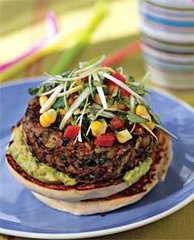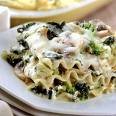My seven year old is a vegetarian. When she started her quest of avoiding meat we thought just cutting out meat itself would be enough, but it has become a journey of shocking, jaw-dropping discovery at just what contains ground-up animal parts. As a result, I am now a veggie. So I have gone from researching good recipes and nutritional information, which is essential for such a young vegetarian, to the family taking on a healthier, more compassionate outlook on life.
Thursday, 5 April 2007
That smells nice........
Can I interest you in some whale bile perfume? Animal fat soap powder? Whale blubber soap? Gland extract musk perfume? Sound nice, don’t they? You would be surprised by what is in your beauty potions and lotions.
Ambergris (whale bile)
Ambergris, also called Ambre gris or Grey Amber is a substance, formed in the stomach or intestine of the cachalot or sperm whale. Thought to be the result of irritation of the whale's stomach due to certain indigestible particles in the whale's food. Ambergris is a pale greyish or creamy yellow to brown or dark brown waxy solid mass. On ageing, the ambergris lightens in colour, particularly when exposed to daylight and salt water. Source: www.ambergris.fr
As ‘yuck’ as this may be, no whales are harmed in the collection of ambergris, as, after it has been coughed up, it then washes up for keen beachcombers to collect and sell.
What is it for?
It is one of the few natural perfumery raw materials which cannot be cultivated, therefore, it will only be in the most expensive perfumes. Ambergris is often described as being musky and having a sweet earthy aroma unlike any other, or a mossy fragrance reminiscent of the damp forest floor. (http://www.ambergris.co.nz)
Gland extract of the musk deer
Musk is the name given to a perfume obtained originally from the strong-smelling substance secreted by a gland in the abdomen of the male musk-deer.
The variety which appears in commerce is a secretion of the musk deer; but the odour is also emitted by the muskrat of India and Europe, by the Musk Duck (Biziura lobata) of southern Australia, the musk shrew, the musk beetle (Calichroma moschata), the alligator of Central Ameriaca, and by several other animals.
The organic compound that is the primary contributor to the odour of musk is muscone which is often used in perfumery and, according to the National Geographic, a traditional medicine of China and its neighbours for 5,000 years or more.
Since obtaining natural musk requires killing the endangered animal, nearly all muscone used in perfumery today is synthetic.
Lipstick - lanolin
Lipstick contains a variety of waxes, oils, pigments, and emollients. Among the waxes are beeswax and carnauba wax, the oils and fats used in lipstick include olive oil, mineral oil, castor oil, cocoa butter, petrolatum and finally lanolin, a sebaceous gland excretion from wool bearing animals such as sheep. Slick that lippy on!
Whale blubber - soap
Thank fully whale blubber is no longer used in soap, however, according to the Vegetarian Society, many soaps and washing powders to contain some form of animal fats.
Brushes
Animal hair is commonly used for paint and shaving brushes, but who knows how humanely it was sourced?
Many products are now available without cruelty to animals, but again, I guess we are back to labelling, or the list of approved products on the Vegetarian Society website.
Ambergris (whale bile)
Ambergris, also called Ambre gris or Grey Amber is a substance, formed in the stomach or intestine of the cachalot or sperm whale. Thought to be the result of irritation of the whale's stomach due to certain indigestible particles in the whale's food. Ambergris is a pale greyish or creamy yellow to brown or dark brown waxy solid mass. On ageing, the ambergris lightens in colour, particularly when exposed to daylight and salt water. Source: www.ambergris.fr
As ‘yuck’ as this may be, no whales are harmed in the collection of ambergris, as, after it has been coughed up, it then washes up for keen beachcombers to collect and sell.
What is it for?
It is one of the few natural perfumery raw materials which cannot be cultivated, therefore, it will only be in the most expensive perfumes. Ambergris is often described as being musky and having a sweet earthy aroma unlike any other, or a mossy fragrance reminiscent of the damp forest floor. (http://www.ambergris.co.nz)
Gland extract of the musk deer
Musk is the name given to a perfume obtained originally from the strong-smelling substance secreted by a gland in the abdomen of the male musk-deer.
The variety which appears in commerce is a secretion of the musk deer; but the odour is also emitted by the muskrat of India and Europe, by the Musk Duck (Biziura lobata) of southern Australia, the musk shrew, the musk beetle (Calichroma moschata), the alligator of Central Ameriaca, and by several other animals.
The organic compound that is the primary contributor to the odour of musk is muscone which is often used in perfumery and, according to the National Geographic, a traditional medicine of China and its neighbours for 5,000 years or more.
Since obtaining natural musk requires killing the endangered animal, nearly all muscone used in perfumery today is synthetic.
Lipstick - lanolin
Lipstick contains a variety of waxes, oils, pigments, and emollients. Among the waxes are beeswax and carnauba wax, the oils and fats used in lipstick include olive oil, mineral oil, castor oil, cocoa butter, petrolatum and finally lanolin, a sebaceous gland excretion from wool bearing animals such as sheep. Slick that lippy on!
Whale blubber - soap
Thank fully whale blubber is no longer used in soap, however, according to the Vegetarian Society, many soaps and washing powders to contain some form of animal fats.
Brushes
Animal hair is commonly used for paint and shaving brushes, but who knows how humanely it was sourced?
Many products are now available without cruelty to animals, but again, I guess we are back to labelling, or the list of approved products on the Vegetarian Society website.
Subscribe to:
Post Comments (Atom)
































No comments:
Post a Comment